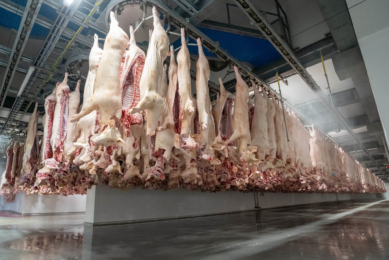NFI sees turnaround in food exports
Thailand’s food exports are forecast to increase by 3.5% in the fourth quarter over the same period a year ago, thanks to the expected recovery of the world economy, reports the National Food Institute (NFI) executive director Yuthasak Supasorrn.
“Major food importing countries such as the US, Japan and countries in Europe are expected to resume importing food in the last quarter of the year after their economies improve from the first half”.
The value of the Kingdom’s food exports contracted 7.6% year on year to Bt351.12 billion in the first half of the year, due to lower demand against higher supplies.
However, despite the lower value in general, Thailand’s processed food benefited from growing concerns about the quality of food, particularly from China, while the export value for processed foods grew 4.8% year on year.
“The overall situation should improve in the latter half, when the volume of food exports should rise 2.6% – but their value will continue to drop at the 6.9% rate. Throughout this year, the value of food exports is expected to drop 7.2% to Bt722 billion,” Yuthasak said.
He said the type-A (H1N1) pandemic should not hurt Thai food exports, due to Thailand’s production quality, which has won global recognition. The average production capacity of the food industry in the first half of 2009 was 51.5%, lower than the 53.8% in the same period the year before.
Yuthasak said the institute forecast food-export value in the third quarter this year to continue to decline compared with its good performance in the same quarter last year. However, if food exports are figured in terms of volume, which the NFI calls “real food export performance”, it is expected to grow by 1.5% from last year.
World food demand in the first half declined, in line with the economic downturn. Thai food manufacturers had to reduce their production capacity to meet the world situation, added Yuthasak.
He said ready-to-eat food was the only segment that grew in the first half from the same period last year. The export value of this segment was Bt155.12 billion, increasing by 4.8% from Bt148.02 billion year on year. Animal foods and raw-material foods experienced sharp drops from last year, with declines of 22.7% and 20.1%, respectively.
The products that would be the key drivers in the country’s exports in the second half of the year, said Yuthasak, would be shrimp, chicken, sugar, fruit juices and canned fish.











